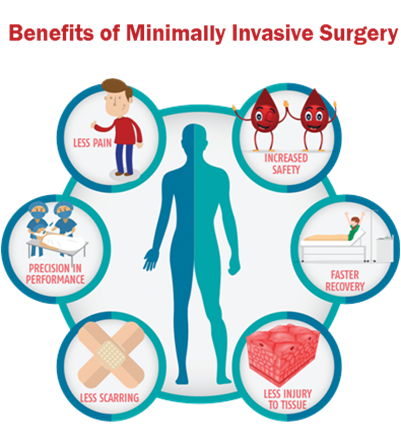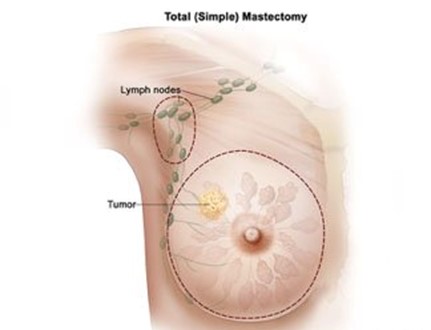A nurse is caring for an adolescent client who has pelvic inflammatory disease as a consequence of a sexually transmitted infection and will need intravenous antibiotic therapy. The client tells the nurse, "My parents think I am a virgin. I don't think I can tell them I have this kind of an infection." Which of the following responses should the nurse make?
"You seem scared to talk to your parents."
"If you want me to, I can tell your parents for you."
"Your parents will have to be told why you are being admitted."
"Give your parents a chance; they'll understand."
The Correct Answer is A
Choice A: "You seem scared to talk to your parents." This response is appropriate because it reflects the client's feelings and shows empathy and respect. It also opens the door for further communication and support from the nurse.
Choice B: "If you want me to, I can tell your parents for you." This response is not appropriate because it does not respect the client's autonomy and confidentiality. It also may make the client feel more anxious or helpless and may damage the trust between the client and the nurse.
Choice C: "Your parents will have to be told why you are being admitted." This response is not appropriate because it does not address the client's feelings or concerns. It also may sound harsh or threatening to the client, who may fear the consequences of telling her parents.
Choice D: "Give your parents a chance; they'll understand." This response is not appropriate because it does not acknowledge the client's feelings or concerns. It also may sound unrealistic or insensitive to the client, who may have valid reasons to doubt her parents' reaction or acceptance.
Nursing Test Bank
Naxlex Comprehensive Predictor Exams
Related Questions
Correct Answer is C
Explanation
Choice A: The social worker is not the correct answer because they are not legally responsible for obtaining informed consent for an invasive procedure. The social worker is a professional who provides psychosocial support and advocacy for clients and families, such as counseling, referrals, or discharge planning.
Choice B: The nurse is not the correct answer because they are not legally responsible for obtaining informed consent for an invasive procedure. The nurse is a professional who provides direct care and education for clients and families, such as assessment, medication administration, or teaching. However, the nurse can assist the physician in obtaining informed consent by witnessing the client's signature, verifying the client's understanding, or documenting the process.
Choice C: The physician is the correct answer because they are legally responsible for obtaining informed consent for an invasive procedure. The physician is a professional who diagnoses and treats clients and families, such as performing surgery, prescribing medication, or ordering tests. The physician must explain the purpose, benefits, risks, alternatives, and consequences of the procedure to the client and obtain their voluntary agreement before proceeding.
Choice D: The unit secretary is not the correct answer because they are not legally responsible for obtaining informed consent for an invasive procedure. The unit secretary is a staff member who performs clerical and administrative tasks for the unit, such as answering phones, filing records, or scheduling appointments.

Correct Answer is A
Explanation
Choice A: Do not apply heat to the area of irradiation. This instruction is correct and should be included in the teaching. Applying heat to the area of irradiation can increase inflammation, pain, or burning sensation on the skin. The client should avoid heat sources such as hot water, heating pads, or sun exposure in the area of irradiation.
Choice B: Use an antibiotic ointment to treat skin breakdown. This instruction is not correct and should not be included in the teaching. Using an antibiotic ointment to treat skin breakdown can cause allergic reactions, infection, or interference with radiation therapy. The client should consult with her provider before using any topical products in the area of irradiation.
Choice C: Lubricate the skin with hypoallergenic lotion. This instruction is not correct and should not be included in the teaching. Lubricating the skin with hypoallergenic lotion can cause irritation, infection, or interference with radiation therapy. The client should avoid applying any lotions, creams, or oils on the area of irradiation unless prescribed by her provider.
Choice D: Do not wash the area of irradiation. This instruction is not correct and should not be included in the teaching. Washing the area of irradiation can help prevent infection, remove dead skin cells, and reduce odor. The client should wash the area of irradiation gently with mild soap and water, pat it dry, and avoid rubbing or scrubbing.

Whether you are a student looking to ace your exams or a practicing nurse seeking to enhance your expertise , our nursing education contents will empower you with the confidence and competence to make a difference in the lives of patients and become a respected leader in the healthcare field.
Visit Naxlex, invest in your future and unlock endless possibilities with our unparalleled nursing education contents today
Report Wrong Answer on the Current Question
Do you disagree with the answer? If yes, what is your expected answer? Explain.
Kindly be descriptive with the issue you are facing.
